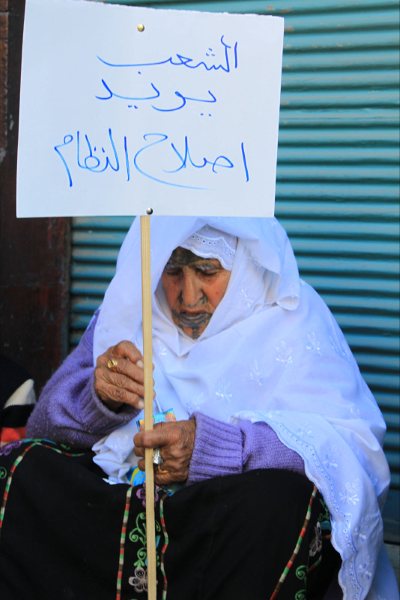Though Syria and Israel are still officially in a state of war, Israel's borders with Syria are the quietest they have been in the last 40 years. Despite the fact that Syria is backing some Palestinian militias and Hezbollah Lebanese militia, Syria still remains Israel's friendly foe, the devil that everyone in Tel-Aviv knows how to deal with.
Israel has hardly moved since Syrian youth took to the streets in most areas of this key Arab state calling for nothing but “democracy,” “free elections,” “citizen rights” and “modernity” instead of the one-party one-man regime that's been ruling the country for more than 50 years. This attitude on the part of the Israelis may be due to their deep anxieties that the outcome of the Syrian uprising could well be a more radical and more hostile regime which would provide more fertile ground for the anti-Israel military groups that use Syria as a base from which to launch their attacks on the Hebrew state. As one member of Israeli Prime Minister Binyamin Netanyahu’s cabinet put it, “We know Assad. We knew his father. Of course, we’d love to have a democratic Syria as our neighbor. But do I think that’s going to happen? No!”
There are some voices in Israel calling for us to support the uprising in Syria, but Israeli official policy is to remain neutral towards what is happening. This can be explained in various ways one of which is to say that Israel is not interested in showing any kind of support for the uprising because of the damage such support could cause the image of this public movement, and so as not to give Assad an excuse for dealing even more harshly with the protestors by claiming that their movement is supported by the arch enemy Israel.
Israel is still confused about evaluating the situation in Syria. Such confusion shows up in the statements of Israeli officials likeAvigdor Lieberman who asks us to treat the regime in Damascus in the same way that Ghaddafi's regime was treated. This might be attributable to the harsh lesson Israel learned when it supported the Mubarak regime in Egypt and stood against the public revolution that overthrow him later.
But is the Arab spring actually going to benefit Israel? Israel used to pride itself that it was the only democracy in the Middle East, but that is about to change now! So will the policies of the elected governments in the Arab World go along nicely with the Hebrew state?Israeli president Shimon Peres considered the democratic changes in the Arab world as having potentially positive results for Israel, as Israel would then be dealing with "better neighbors", while on the other hand General Amos Gilad, head of the Israeli Defense Ministry’s Diplomatic-Security Bureau said that "The fall of the Syrian regime led by President Bashar al-Assad will cause a devastating crisis for Israel." This fear is fed by the results of elections in Arab countries like Tunisia, Morocco and Egypt where the Islamists swept into power and now make up the cabinets. The worst of Israeli fears is the creation of a new form of "cooperation" between the countries in which the Islamists have carried the elections which would be closely related to the outcome of the revolution is Syria. General Amos Gilad also said: " Israel will face an Islamic empire in the Middle East, lead by the Muslim Brotherhood in Egypt, Jordan and Syria."
In my opinion the main point is that the transformation towards democratic regimes in Arab Middle Eastern countries is not necessarily good news to Israel. The anti-Israel trend among the people of the Arab world is still strong and effective. The people of Syria, Egypt, Tunis, and Libya did not revolt against their regimes because of their regimes attitude to Israel - they stood up against Tyranny and Autocracy! For Israel the choice is excuriatingly difficult: between a tyrant they know how to talk to and the none too friendly outcome of democratic change in the Arab world!












